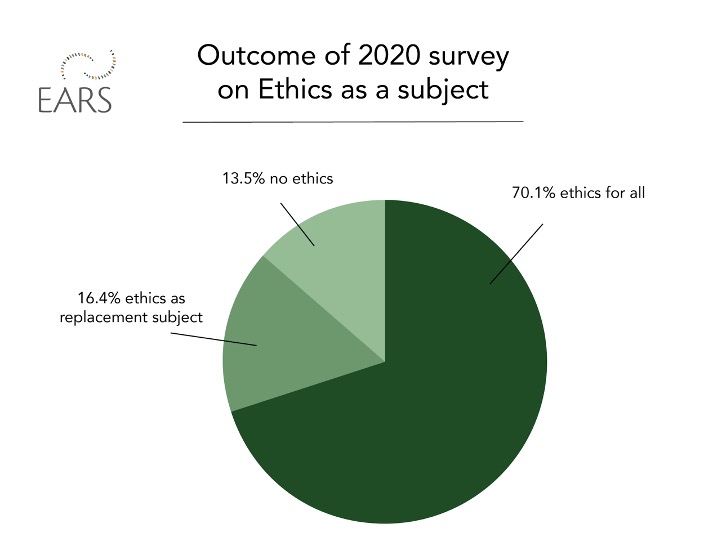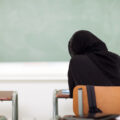Austrian education on religion in a transformation process
Austrian education on religion in a transformation process
This article is part of our series on the role of religion in education across Europe.
In Austria, parents are legally responsible for the religious education (RE) of children. By the age of 14, children reach the status of religious majority and attain full control over their religious life and affiliation.[1]
In state schools and private schools with a public status, RE in confessional form is an obligatory subject from the first up to the last (13th) grade. This concerns all pupils affiliated with an officially acknowledged church or religious society. Sixteen different religious communities have reached this state of acknowledgement in Austria, which entitles them to various rights and duties. These communities adhere to either the Buddhist, Christian, Islamic, or Jewish traditions.[2]
Rights and duties of religious communities
One of the rights of the acknowledged communities is the RE of affiliated children in schools, therefore the classes are separated on the basis of denomination. The church or religious society has to provide, conduct, and supervise the confessional education and is responsible for the granting of permissions for teachers (in the Catholic Church called missio canonica).[3] The topics and aims of the classes depend on various curricula given by the denominations. For instance, in primary schools, Catholic children shall acquire knowledge in their own religion and skills in orientation in life, religion in the context of society and culture, and the diversity of religious worldviews.[4]
The mentioned religious communities are also granted the right to hold religious activities at school. In official documents referring to religious activities in general, types of activities are mostly exemplified by church services. This can be seen as an example of the favoured position of Christian (Catholic) churches in practice. An obvious privilege aligned with the Christian churches is the requirement to place crosses in classrooms if more than half of the pupils have a Christian confession.[5]
RE and the freedom of religion
The right to educate children in schools about their religion is seen as a ‘realisation of religious freedom in a corporate and individual form’. However, the freedom of religion also grants for the opposite and consequently there is an option to sign out from religious classes at school. Pupils older than 14, or their parents when they are younger, can deregister them from RE. In this case, there is no obligation for the students to attend an alternative subject.[6] [7]
Ethics as (alternative) teaching subject
However, in autumn 2021, a new regulation concerning ethics education will become effective. All pupils in 9th grade or higher will be obliged to attend either classes on religion or classes on ethics.[8] [9] In 1997, the school subject ‘Ethics’ started as a school pilot project in grammar schools and vocational schools, and it will soon be turned into an obligatory subject for all students who do not attend RE classes.[10] Education in ethics should provide an engagement and confrontation with different philosophical, cultural, and religious aspects of life and encourage self-reflectiveness.[11]
Still, the wider public seems to be unsatisfied with the new change. A popular petition was held on the vote for Ethics classes for all pupils regardless of religious affiliation, religious classes, and grade.[12] The petition demands “common teaching of values and integration at school – regardless of origin, worldview, or religion.” In a survey in 2020, 70% of the respondents voted for Ethics as a general subject.[13] Nearly 160,000 Austrians had signed the petition by January 2021. As a result of this high number of signatures, a discussion on the concerning topic will be held in the National Assembly.[14]

An innovative project on interreligious teaching
An interreligious project in Graz, Austria’s second-largest city, is proposing a different modification of the RE system. This project implies shared teaching units by Islamic and Roman-Catholic teachers within the confessional RE. It is a research project of the University of Graz called ‘Christian-Islamic religious education in team teaching. Evidence-based development of local theories for a didactics of cooperative religious teaching/learning processes’ and is funded by the Austrian Science Fund until 2024.[15]
The head of the project, Wolfgang Weirer, emphasised the importance of schools as “places where people with different ethnic, cultural and mostly also religious backgrounds encounter each other.”[16] The main goal is to encourage integration through the personal contact of pupils which adhere to the two largest religious communities in Austria: Islam and Christianity. Teachers will play an important role in this setting as role models for the interreligious encounter. The research focuses on the shared teachings and their capabilities and limitations. It will also examine the legal possibilities, the perspectives of the teachers, and the requirements for this kind of education.[17]
The future of RE in Austria – a lookout
The status of RE in Austria is currently in a transformation process. It remains to be seen how the new regulation on education on ethics will be established. There might also be an impact on the confessional RE itself. The voice of the malcontents is loud, but could be overseen by government parties and politicians in favour of RE and the partly powerful religious communities and churches behind it. Nonetheless, changes are bound to occur, which are not least due to the changes within Austria’s society.
Our team of analysts conducts research on topics relating to religion and society. In April, May and June 2021, we are focusing on the subject of education. Find out more on the EARS Dashboard.
[2] Gesetzlich anerkannte Kirchen und Religionsgesellschaften
[8] Ethik – Pflichtgegenstand für alle Schülerinnen und Schüler, die keinen Religionsunterricht besuchen
[9] Ethikunterricht: Ab 2021 für nicht an Religion teilnehmende Schüler
[11] Ethik – Pflichtgegenstand für alle Schülerinnen und Schüler, die keinen Religionsunterricht besuchen
[12] „Ethik für alle“-Volksbegehren
[13] Wie stehen Sie zum Ethikunterricht?
[14] Volksbegehren – Aktuelles
[15] PROJEKTSTART: “Christlich-Islamischer Religionsunterricht im Teamteaching”
[16] Graz: Projekt: Katholisch-islamischer Unterricht
[17] PROJEKTSTART: “Christlich-Islamischer Religionsunterricht im Teamteaching”






